William Faulkner, a Pulitzer Prize-winning Southern Gothic novelist, was born in 1897 and remains renowned for his works, such as The Sound and the Fury, As I Lay Dying, and A Rose for Emily. Awarded the Nobel Prize for Literature in 1949, Faulkner’s literary work was centered around the fictional Yoknapatawpha County, based in Lafayette County, Mississippi, where he spent most of his life.
Though his exact salary during his career is unknown, William Faulkner’s net worth is estimated at around $5 million in 2023. Apart from his notable literary achievements, Faulkner’s financial success can also be attributed to his illustrious career, which brought him both fame and recognition, setting him apart as one of the most influential writers of the twentieth century.
Faulkner’s journey to establish himself as a respected author required dedication, perseverance, and a natural talent for storytelling. His unique writing style and the creation of a fictional universe continue to inspire and captivate readers to this day, making his works an enduring legacy.
Content of This Article
- William Faulkner’s Appearance
- Facts About William Faulkner
- William Faulkner’s Net Worth
- Early Life
- William Faulkner’s Career
- William Faulkner’s Awards and Achievements
- William Faulkner’s Controversies
William Faulkner’s Appearance (Height, Hair, Eyes & More)
| Height |
5 ft 4 in
1.65 m |
| Weight |
189 pounds
86 kg |
| Hair Color | White |
| Eye Color | Black |
| Body Type | Average |
| Sexual Orientation | Straight |
Facts About William Faulkner
| Nationality | American |
| Estimate Net Worth | $15 million |
| Religion | Christian |
| Zodiac Sign | Virgo |
| Birthplace | New Albany, Mississippi |
| Birthday | September 25, 1897 |
William Faulkner’s Net Worth
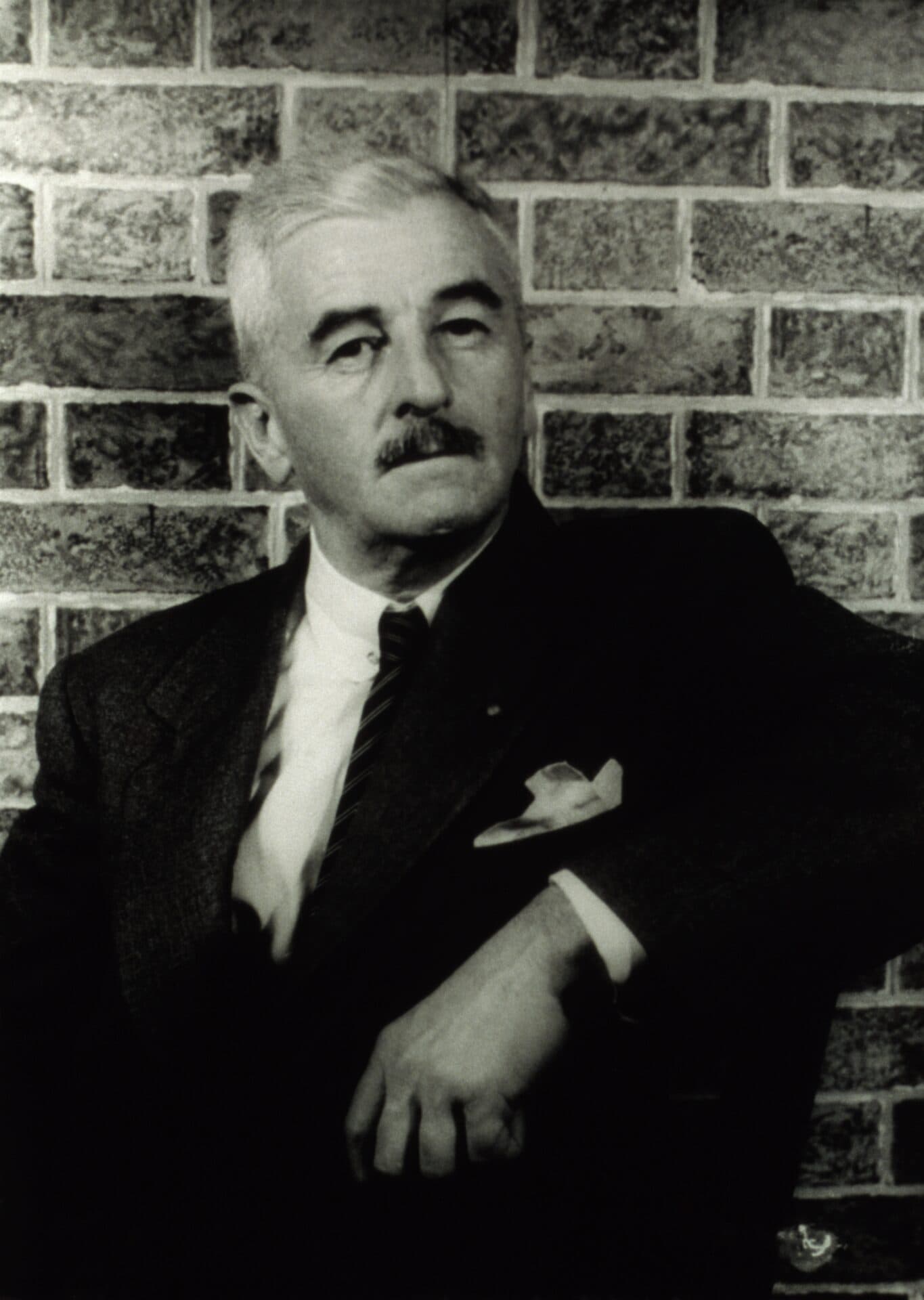
As of 2023, William Faulkner is estimated to have a net worth of $15 million. Known for his revolutionary novels set in the fictional Yoknapatawpha County, Faulkner has firmly established himself as a literary icon of the 20th century. His works encompass various forms of writing, including poetry, novels, screenplays, and short stories, earning him accolades and global recognition.
Critically acclaimed novels such as The Sound and the Fury and As I Lay Dying significantly contributed to Faulkner’s net worth. He received numerous prestigious awards throughout his career, enhancing his financial status. Some of the most notable awards include:
- Nobel Prize in Literature (1949) for his powerful and artistically unique contribution to the modern American novel
- Pulitzer Prize for Fiction (1955, 1963) for the novels A Fable and The Reivers, respectively
- National Book Award (1951, 1955) for Collected Stories and A Fable
In addition to his works and achievements, Faulkner is remembered for some of his thought-provoking quotes. For example, he emphasized the importance of learning from one’s mistakes, stating, “Teach yourself by your own mistakes; people learn only by error.”
Despite having a significant net worth, Faulkner was known for his media shyness and preference for a modest lifestyle. He used some of his Nobel Prize money to establish a fund supporting new fiction writers, eventually creating the PEN/Faulkner Award for Fiction. Another part of the prize money was donated to a local Oxford bank, setting up a scholarship fund to help educate African-American teachers at Rust College in nearby Holly Springs, Mississippi.
In conclusion, William Faulkner’s net worth is a testament to his immense success and influence in the literary world. Through his innovative writing style and numerous accolades, Faulkner’s legacy as a groundbreaking Southern writer remains unquestionable.
Early Life
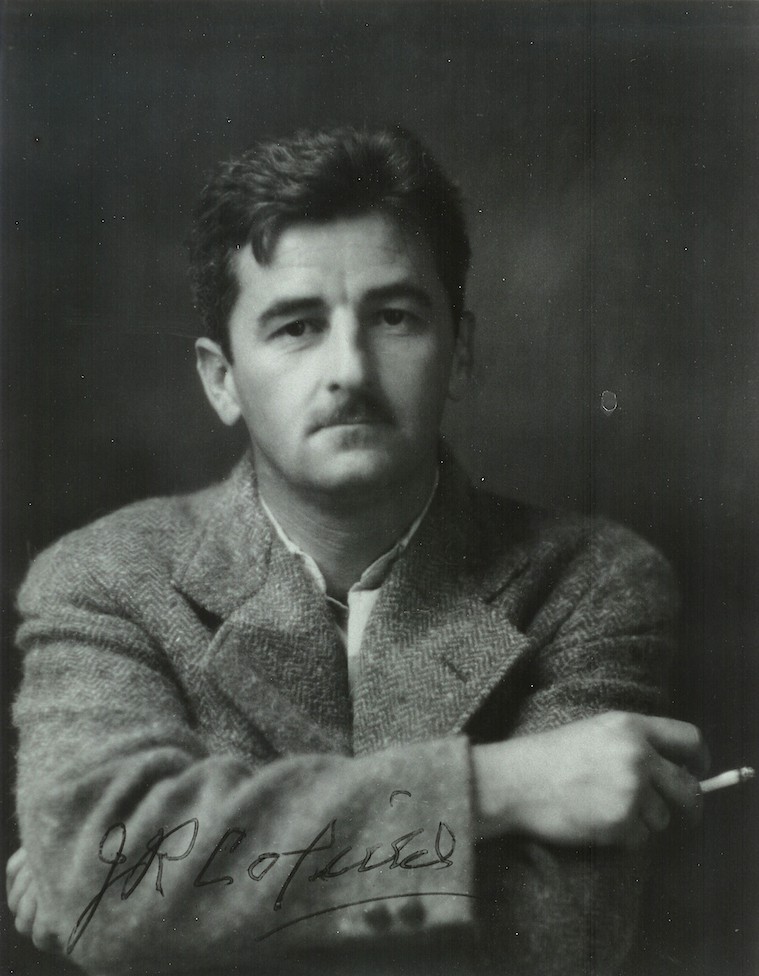
William Faulkner was born in New Albany, Mississippi, on September 25, 1897. He grew up in a close-knit family with his parents, Murray and Maud Butler Faulkner, and three younger brothers. Faulkner’s childhood in Mississippi heavily influenced his later work, as he became famous for his novels set in the American South, particularly the fictional Yoknapatawpha County.
Education
Faulkner attended public schools in Oxford, Mississippi, where his family moved when he was young. Despite being a voracious reader and showing a strong interest in literature, he did not excel academically. After completing high school, Faulkner briefly attended the University of Mississippi in Oxford. However, he left the university after only a few semesters, choosing not to pursue a formal education.
While at the University of Mississippi, Faulkner contributed to the university newspaper and began honing his literary skills. He developed his distinctive writing style during these years, later bringing him critical acclaim and international recognition.
William Faulkner’s Career
Novels
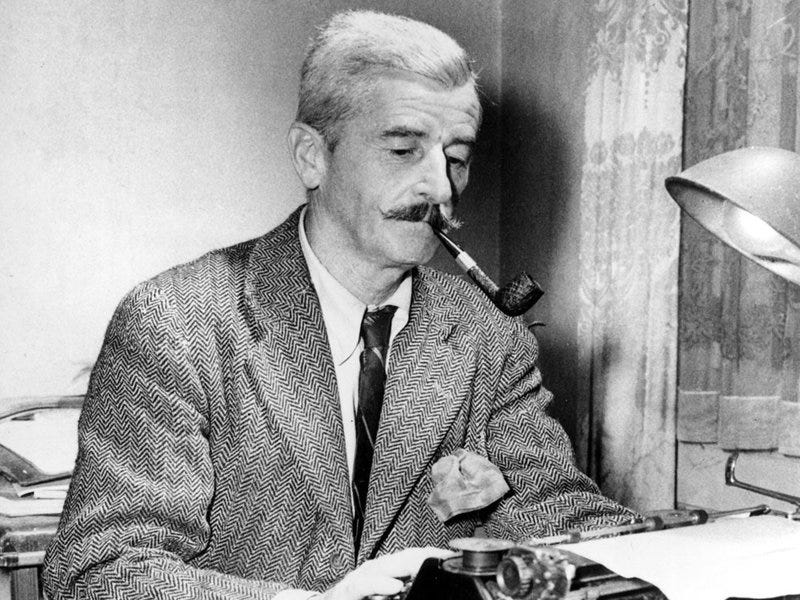
William Faulkner’s literary career began with the publication of his first novel, Soldier’s Pay (1926), which drew upon his experiences from World War I. His critical acclaim started gaining momentum with The Sound and the Fury (1929), a novel that showcases the despairing, declining Compson family. Faulkner’s experimental storytelling involved multiple narrators and has been compared to Picasso’s cubism in literature.
His other notable novels include As I Lay Dying (1930), which follows the Bundren family’s journey to bury their mother; Light in August (1932); Absalom, Absalom! (1936); and The Reivers (1962), which explores a boy’s transition into adulthood. Faulkner’s writing often occurred in the fictional Yoknapatawpha County, based on Lafayette County, Mississippi, where he spent much of his life.
Short Stories
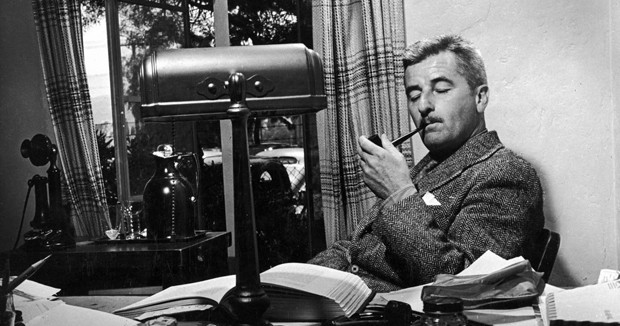
Faulkner was also prolific in writing short stories throughout his career. He published several collections, including These 13 (1931), Doctor Martino and Other Stories (1934), and Collected Stories of William Faulkner (1951). “A Rose for Emily,” one of his most famous short stories, has been anthologized and studied in classrooms for decades.
Poetry
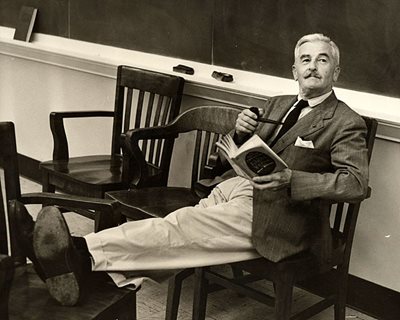
Although chiefly known for his novels and short stories, Faulkner also dabbled in poetry. His early work, The Marble Faun (1924), was a collection of pastoral poems, and he later published another poetry collection titled A Green Bough (1933). However, his poetic contributions are not as widely acclaimed as his fiction.
During the 1930s and 1940s, Faulkner supplemented his income by writing movie screenplays, some of which were adaptations of his fiction and works by other authors. This experience added depth and variety to his literary career, and his continued recognition earned him a Nobel Prize, two Pulitzer Prizes, and a National Book Award.
William Faulkner’s Awards and Achievements
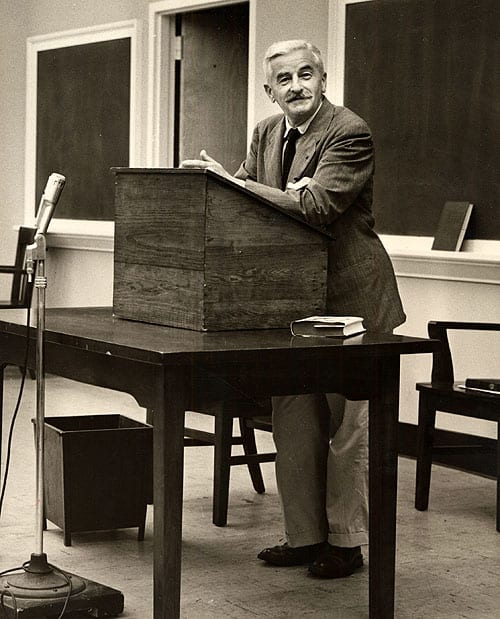
William Faulkner, born September 25, 1897, was an American writer known for his novels and short stories set in the fictional Yoknapatawpha County. He is considered one of the greatest American novelists of the twentieth century and has received numerous awards and recognitions for his outstanding contributions to literature.
Faulkner’s most notable achievement was being awarded the 1949 Nobel Prize in Literature. This prestigious award recognized Faulkner’s remarkable literary talent, innovative narrative techniques, and ability to capture the essence of the human experience in his works.
In addition to the Nobel Prize, Faulkner received two Pulitzer Prizes for Fiction. His first Pulitzer Prize came in 1955 for his novel A Fable and the second in 1963 for The Reivers. These awards further cemented Faulkner’s place as a prominent American writer, as the Pulitzer Prize is awarded to works that represent distinguished achievements in American literature, theater, and music.
During his lifetime, Faulkner was also recognized with the prestigious National Book Award. Established in 1950, this award honors outstanding literary works by American authors. Faulkner was among the inaugural winners, receiving the award in 1951 for The Collected Stories of William Faulkner. This collection showcases the extensive range of his storytelling techniques and styles.
Furthermore, the American Academy of Arts and Letters honored Faulkner with its highest recognition for a writer, the Gold Medal for Fiction 1962. This prestigious award is seldom given, indicating the exceptional esteem in which Faulkner was held within the literary community.
Lastly, Faulkner was also honored on an international level by being named a Chevalier de la Légion d’Honneur by France in 1951. This illustrious award is bestowed upon individuals who have made significant contributions to French culture – a testament to the broad impact and influence of Faulkner’s work.
In summary, William Faulkner’s career was marked by numerous achievements and awards, including the 1949 Nobel Prize in Literature, the 1955 Pulitzer Prize for Fiction (A Fable), the 1963 Pulitzer Prize for Fiction (The Reivers), the National Book Award (1951, The Collected Stories of William Faulkner), American Academy of Arts and Letters Gold Medal for Fiction (1962), and Chevalier de la Légion d’Honneur (1951).
William Faulkner’s Controversies
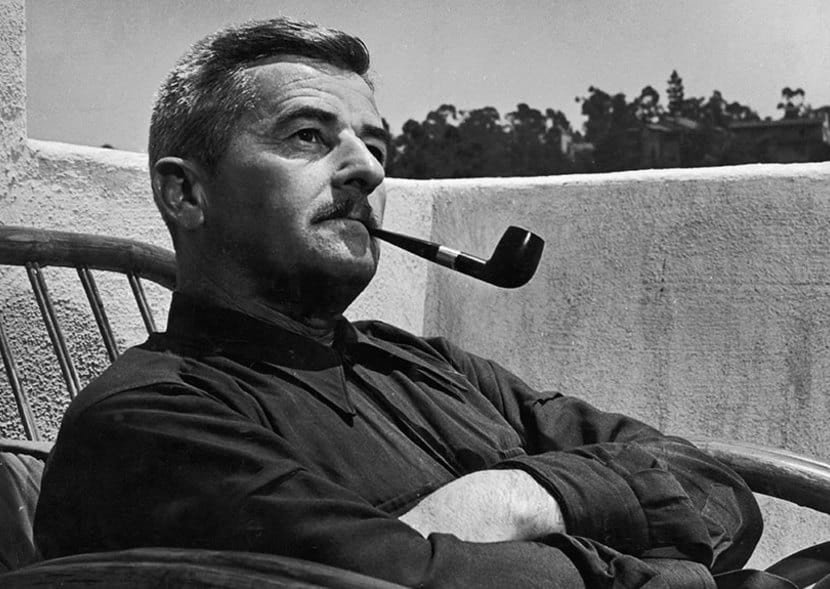
William Faulkner, one of the most celebrated American writers, is renowned for his novels and short stories set in the fictional Yoknapatawpha County. Despite his significant contributions to literature and illustrious career, he remains a controversial figure in history due to his seemingly contradictory messages on race.
In his life, Faulkner held undesirable beliefs about race and societal norms. He openly opposed desegregation and supported violence as a means of imposing racial order. Additionally, Faulkner regretted the South’s defeat in the Civil War.
It is essential to note that Faulkner’s fiction depicted an unflinching examination of the evils of slavery and segregation. Through his works, he delved into the complexities of race relations, acknowledging the atrocities faced by the African-American community. This stark contrast between his personal beliefs and his literary work has contributed to the controversies surrounding him.
Faulkner’s mixed stance on race can be divided into the following aspects, which are his personal beliefs, where he openly opposed desegregation, supported lynch mobs, and lamented the South’s loss in the Civil War and fictional portrayal where he explored the evils of slavery and segregation, acknowledging the suffering endured by African Americans.
As a result of these contrasting perspectives on race, William Faulkner continues to be a subject of debate and criticism. While his literary works undoubtedly hold great importance in American literature, examining his position on race and its role in shaping his understanding of the human condition is essential.
Net Worth of Other Notable Authors
Ernest Hemingway’s Net Worth
Ernest Hemingway, a luminary in American literature, cultivated a wealth reflective of his profound impact on 20th-century fiction and journalism. Born in 1899, Hemingway’s life was marked by a relentless pursuit of artistic expression and adventure, which he translated into iconic novels like “For Whom the Bell Tolls” and “The Sun Also Rises.” His unique writing style, characterized by terse, understated prose, and his narratives infused with personal experiences from World War I to big game hunting in Africa, earned him critical acclaim and a broad readership. Hemingway’s life, intertwined with bouts of personal struggle and complex relationships, also played out in the public eye, adding to his mystique and celebrity status. Through the commercial success of his numerous works and various adaptations, coupled with wise financial investments, Ernest Hemingway’s net worth was considerable by the time of his death in 1961.
Isabel Allende’s Net Worth
Isabel Allende, a renowned novelist and one of the world’s most widely read Spanish-language authors, has accumulated considerable wealth throughout her illustrious career. Born in Lima, Peru, Allende has enthralled readers with her literary works, which often incorporate elements of magical realism. Her most famous novels include “The House of the Spirits” and “City of the Beasts,” which have garnered significant commercial success and critical acclaim. Her impact on literature extends beyond her narrative contributions; she has also been a significant influence in the cultural understanding and appreciation of Latin American storytelling traditions. As of 2023, Isabel Allende’s net worth is approximately $12 million.

